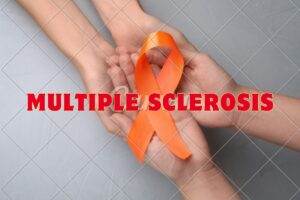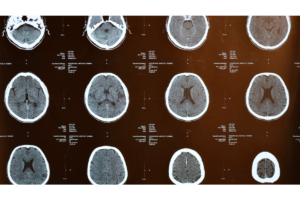Introduction: Unveiling the Mystery of Multiple Sclerosis
Multiple Sclerosis (MS) is a complex and often misunderstood disease that affects millions of people worldwide. This blog post tries to clarify the causes of Multiple Sclerosis, its diagnosis, and the available treatment options. It was written with MS patients, their families, caregivers, and anyone else interested in in-depth information about the disease in mind. You will have a thorough understanding of what MS patients need to know by the end of this article, which will empower you with knowledge and give you hope for the future, thanks to advancements in support and research.
What Is Multiple Sclerosis?
Multiple Sclerosis is a chronic illness that impacts the central nervous system, including the brain and spinal cord. Sclerosis is a disease of the immune system that targets the myelin sheath, which covers nerve fibres and acts as a barrier to communication between the brain and the body.

The Impact of MS on the Body
Damage to the myelin causes interference with the signals that go through the nerves. Numerous symptoms, including mental, physical, and occasionally psychiatric issues, may result from this. Because MS can vary widely in severity and course from person to person, managing the illness can be extremely difficult.
Multiple Sclerosis Causes
Genetic Factors
While the exact cause of Multiple Sclerosis remains unknown, researchers believe that a combination of genetic and environmental factors contributes to its development. A family history of MS may increase an individual’s risk of developing the disease, indicating a genetic predisposition.
Environmental Triggers
An increased risk of MS has also been linked to environmental factors, such as exposure to specific viruses and lack of sunlight, which results in low levels of vitamin D. Research indicates that lifestyle decisions and geographic location may affect a person’s risk of contracting the illness.
Multiple Sclerosis Symptoms
Common Signs and Symptoms
There is a wide range of symptoms associated with Multiple Sclerosis, including gait difficulties, tingling or numbness, weakness in the muscles, vision problems, and balance and coordination problems, among the most common ones. These symptoms can fluctuate in severity and may worsen during periods of stress or illness.
Cognitive and Emotional Impact
In addition to physical symptoms, MS can also affect cognitive functions, leading to problems with memory, concentration, and problem-solving. Emotional changes, such as depression and anxiety, are also common among people with MS, underscoring the need for comprehensive care that addresses both physical and mental health.
Diagnosis of MS


Clinical Evaluation
Diagnosing Multiple Sclerosis involves a thorough medical history and neurological examination. Doctors look for signs of nerve damage in multiple areas of the central nervous system and consider the patient’s symptoms and history of relapses.
Diagnostic Tests
Several tests are used to diagnose MS, including MRI scans to detect lesions in the brain and spinal cord, lumbar punctures to analyze cerebrospinal fluid, and evoked potential tests to measure electrical activity in the brain. These tests help confirm the diagnosis and rule out other conditions with similar symptoms.
Treatment Methods
Medication Options
There is currently no cure for Multiple Sclerosis, but several medications can help manage the disease and its symptoms. Disease-modifying therapies (DMTs) are designed to slow the progression of MS and reduce the frequency of relapses. Additionally, various medications can address specific symptoms, such as muscle spasms, pain, and fatigue.
Lifestyle and Complementary Therapies
Lifestyle changes and complementary therapies can also play a crucial role in managing MS. This blog post provides practical advice on regular exercise, a balanced diet, stress management techniques, and physical therapy, all of which can help improve overall health and well-being. Some patients find relief through acupuncture, massage, and other alternative treatments, and these coping strategies are also discussed in detail.
Living with Multiple Sclerosis
Daily Management
Living with MS requires ongoing management and adaptation. Developing a routine that includes regular exercise, healthy eating, and adequate rest is essential. Patients should also stay informed about their condition and actively participate in their treatment plans.


Support Systems
Having a strong support system can significantly improve the lives of MS patients. Friends, family, and support groups provide emotional support, practical assistance, and a sense of community. Healthcare professionals, including neurologists, physical therapists, and mental health counselors, are also critical members of the support team.
What Should MS Patients Know About This Disease?
Staying Informed
Knowledge is a powerful tool when it comes to managing multiple Sclerosis. By learning about the latest research, treatment options, and self-care strategies, patients can take control of their health and well-being. Understanding the disease empowers patients to make informed decisions about their health, fostering a sense of power and empowerment.
Advocating for Your Health
MS patients should advocate for their health by communicating openly with their healthcare providers, seeking second opinions when necessary, and exploring all available treatment options. It’s important to remember that each person’s experience with MS is unique, and what works for one person may not work for another.
Coping with the Emotional Impact
Mental Health Matters
Coping with the emotional impact of MS is just as important as managing physical symptoms. Patients should not hesitate to seek help for depression, anxiety, or other mental health issues. Therapy, support groups, and medication can all play a role in maintaining cognitive health.

Finding Joy and Purpose
Despite the formidable challenges of living with MS, many patients demonstrate remarkable resilience, finding ways to lead fulfilling lives. Engaging in hobbies, pursuing passions, and maintaining social connections can provide joy and purpose. It’s essential to focus on what can be done rather than what has been lost, a testament to the strength and determination of MS patients.
The Future of MS Research
Promising Advances
Research in Multiple Sclerosis is sclerotized, with scientists tirelessly exploring new treatments and potential cures. Promising advances in stem cell therapy, neuroprotection, and immunotherapy offer a beacon of hope for more effective ways to manage and eventually cure MS, instilling a sense of optimism and hope in the audience.
Staying Hopeful
While living with MS can be challenging, advancements in research and treatment provide hope for the future. Staying optimistic and proactive can make a significant difference in the quality of life for MS patients.
Conclusion: Embracing Life with MS
Living with Multiple Sclerosis is undeniably challenging, but with the right knowledge, support, and treatment, it is possible to lead a fulfilling life. Patients with MS can navigate their journey more effectively if they are aware of the causes, symptoms, diagnosis, and available treatment options. It is critical to keep educated, speak up for their health, and find happiness in small things. Recall that there is a community of support and hope for the future ahead of you; you are not alone on this journey.
Some Frequently Asked Questions about Multiple Sclerosis
What is multiple sclerosis, or MS?
In response, multiple sclerosis (MS), a chronic neurological disorder, impacts the central nervous system (brain and spinal cord). MS happens when the immune system harms, injures, or scars the myelin sheath that surrounds nerve fibers.
How does MS affect day-to-day living?
Multiple sclerosis can cause numerous symptoms, such as exhaustion, tingling or numbness, muscle weakness, trouble walking, vision issues, and abnormalities in cognition. These symptoms can affect various aspects of day-to-day living and change in severity over time.
Which multiple sclerosis treatments are available?
MS treatment aims to improve quality of life, manage symptoms, and slow the disease’s progression. Options include disease-modifying therapies (DMTs) to slow the progression of disability, medication for symptom management, and lifestyle modifications.
What role does medication play in managing MS?
Answer: Medications for MS are used to control symptoms, manage relapses, and modify the course of the disease. DMTs are the primary medications prescribed to reduce the frequency and severity of relapses and delay disability progression in relapsing forms of MS.
What are the common therapies used for MS?
Answer: MS therapy options include physical therapy to improve mobility and strength, occupational therapy to enhance daily living skills, speech therapy for communication difficulties, cognitive rehabilitation to address cognitive impairments, and alternative treatments such as yoga and acupuncture.
How can MS patients connect with others in the MS community?
Answer: MS patients can connect with others in the MS community through support groups, online forums, social media platforms, and local MS organizations. These connections provide valuable support, information, and resources for individuals living with MS and their caregivers.
Is MS considered an autoimmune disease?
Answer: Yes, MS is classified as an autoimmune disease, where the body’s immune system mistakenly attacks its tissues. In the case of MS, the immune system attacks the myelin sheath, the protective covering of nerve fibers in the central nervous system.
What Are Demyelinating Diseases, and How Are They Related to MS?
Answer: Demyelinating diseases are conditions characterized by damage to the myelin sheath, leading to disruptions in nerve signal transmission. MS is the most common demyelinating disease, but other conditions, such as neuromyelitis optica (NMO) and acute disseminated encephalomyelitis (ADEM), also involve demyelination.
How important are diet and exercise for managing MS?
Answer: Diet and exercise play crucial roles in managing MS symptoms and promoting overall health and well-being. A healthy diet rich in fruits, vegetables, whole grains, and lean proteins can support immune function and reduce inflammation, while regular exercise can improve strength, flexibility, mood, and fatigue levels.
How is MS diagnosed?
Answer: The diagnosis of MS typically involves a combination of medical history review, neurological examination, imaging tests (such as MRI), and other diagnostic procedures. The McDonald criteria are utilized to validate the diagnosis and categorize the disease subtype.
 Touch Blog
Touch Blog



